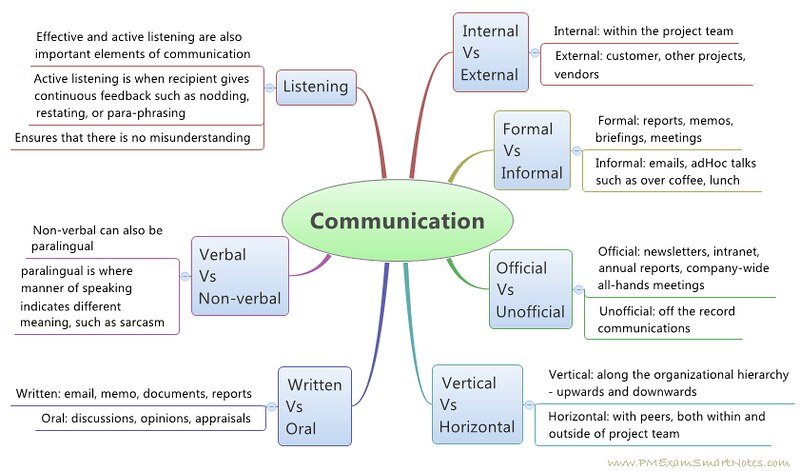Working in a remote team can be a dream come true for many professionals, offering the freedom to work from anywhere and the flexibility to manage their own schedules. However, amidst the convenience and autonomy, there lies a hidden challenge that can disrupt the harmony of these virtual workspaces: conflict and stress. As remote teams rely heavily on digital communication and lack face-to-face interactions, conflicts can easily escalate, and stress levels can soar. In this article, we will explore effective strategies and practical tips to navigate the treacherous waters of conflict and stress in remote teams, ensuring a harmonious and productive work environment for all. So, grab your virtual life jacket and let’s dive in!
Table of Contents
- Understanding the Dynamics of Conflict in Remote Teams
- Effective Communication Strategies for Resolving Conflict in Remote Teams
- Managing Stress and Promoting Well-being in Remote Teams
- Building Trust and Collaboration in Remote Teams
- Implementing Conflict Resolution Techniques in Remote Teams
- Q&A
- In Retrospect

Understanding the Dynamics of Conflict in Remote Teams
Working in remote teams brings its own set of challenges, and one of the most significant ones is managing conflict. Conflict can arise due to various reasons, such as miscommunication, differences in work styles, or even cultural misunderstandings. It is crucial to understand the dynamics of conflict in remote teams to effectively address and resolve these issues.
1. Communication breakdown: In remote teams, communication is primarily reliant on digital tools and platforms. This can lead to misunderstandings, as non-verbal cues and tone of voice are often lost. It is essential to encourage open and transparent communication, emphasizing the use of video calls and regular check-ins to minimize misinterpretations.
2. Lack of trust: Building trust in remote teams can be challenging, as team members may not have the opportunity for face-to-face interactions. Trust is crucial for effective collaboration, and without it, conflicts can escalate. Encourage team-building activities, such as virtual team lunches or online games, to foster trust and strengthen relationships.
3. Different time zones and cultural differences: Remote teams often consist of members from different time zones and cultural backgrounds. These differences can lead to conflicts arising from varying work schedules, expectations, or communication styles. It is important to establish clear guidelines and expectations, promote cultural sensitivity, and encourage open dialogue to bridge these gaps and prevent conflicts.
By , leaders can proactively address and resolve conflicts, fostering a positive and productive work environment for all team members.

Effective Communication Strategies for Resolving Conflict in Remote Teams
When working in remote teams, conflicts can arise due to various reasons such as miscommunication, cultural differences, or differing work styles. However, with the right communication strategies, these conflicts can be resolved effectively, ensuring a harmonious and productive work environment. Here are some strategies to consider:
- Active Listening: Encourage team members to actively listen to each other’s perspectives without interruption. This helps in understanding different viewpoints and finding common ground.
- Clear and Concise Communication: Emphasize the importance of clear and concise communication to avoid misunderstandings. Encourage team members to express their thoughts and ideas in a straightforward manner.
- Regular Check-ins: Schedule regular check-ins to provide a platform for team members to discuss any conflicts or concerns they may have. This allows for timely resolution and prevents conflicts from escalating.
- Respectful Feedback: Foster a culture of respectful feedback where team members can provide constructive criticism without causing offense. Encourage the use of “I” statements to express concerns and focus on the issue at hand rather than personal attacks.
- Virtual Team Building Activities: Organize virtual team building activities to strengthen relationships and build trust among team members. This can help in reducing conflicts and promoting a positive team dynamic.
By implementing these effective communication strategies, remote teams can navigate conflicts successfully, fostering collaboration and achieving their goals with minimal disruptions.

Managing Stress and Promoting Well-being in Remote Teams
Creating a positive and healthy work environment is crucial for . Here are some effective strategies to foster well-being:
- Encourage work-life balance: Remote work can blur the boundaries between work and personal life. Encourage team members to establish clear boundaries and set aside dedicated time for self-care and relaxation.
- Provide mental health resources: Remote work can sometimes lead to feelings of isolation and increased stress. Offer access to mental health resources such as counseling services or online support groups to support team members’ well-being.
- Promote regular breaks: Encourage team members to take regular breaks throughout the day. Remind them of the importance of stepping away from their screens, stretching, and engaging in activities that help them recharge.
- Facilitate virtual team-building activities: Foster a sense of connection and camaraderie among remote team members by organizing virtual team-building activities. This can include virtual coffee breaks, online games, or even virtual fitness challenges.
- Recognize and appreciate achievements: Celebrate individual and team accomplishments to boost morale and motivation. Regularly acknowledge and appreciate the efforts of remote team members to create a positive and supportive work culture.
By implementing these strategies, remote teams can effectively manage stress and prioritize the well-being of their members, ultimately leading to increased productivity and satisfaction.

Building Trust and Collaboration in Remote Teams
Trust and collaboration are essential for the success of any team, and even more so in remote teams where physical distance can create barriers. Here are some strategies to foster trust and collaboration in remote teams:
- Establish clear communication channels: Ensure that team members have access to reliable communication tools such as video conferencing, instant messaging, and project management platforms. Encourage regular check-ins and provide opportunities for team members to share updates, ask questions, and provide feedback.
- Encourage open and transparent communication: Create a safe and inclusive environment where team members feel comfortable expressing their thoughts and ideas. Encourage active listening and provide constructive feedback to foster open dialogue.
- Set clear expectations and goals: Clearly define roles, responsibilities, and expectations for each team member. Establish measurable goals and milestones to track progress and ensure everyone is aligned towards a common objective.
- Promote virtual team-building activities: Organize virtual team-building activities to foster a sense of camaraderie and build relationships among team members. This could include virtual coffee breaks, online games, or even virtual team retreats.
- Recognize and celebrate achievements: Acknowledge and appreciate the efforts and achievements of individual team members and the team as a whole. Celebrate milestones and successes to boost morale and motivation.
By implementing these strategies, remote teams can build trust, enhance collaboration, and create a positive and productive work environment.
Implementing Conflict Resolution Techniques in Remote Teams
When working in remote teams, conflicts can arise due to various reasons such as miscommunication, differences in work styles, or cultural misunderstandings. It is essential to address these conflicts promptly and effectively to maintain a harmonious and productive work environment. Here are some techniques that can help in resolving conflicts within remote teams:
- Active Listening: Encourage team members to actively listen to each other’s perspectives without interruption. This helps in understanding the root cause of the conflict and finding common ground for resolution.
- Clear Communication: Emphasize the importance of clear and concise communication within the team. Encourage team members to express their thoughts and concerns openly, ensuring that everyone understands each other’s expectations and responsibilities.
- Mediation: In case of more significant conflicts, consider involving a neutral mediator who can facilitate discussions and help find mutually agreeable solutions. This can be done through video conferences or online platforms specifically designed for conflict resolution.
- Establishing Team Norms: Create a set of guidelines or norms that outline acceptable behavior and conflict resolution processes within the team. This helps in setting expectations and providing a framework for resolving conflicts in a fair and consistent manner.
- Encouraging Empathy: Foster a culture of empathy and understanding within the team. Encourage team members to put themselves in each other’s shoes and consider different perspectives before jumping to conclusions or making judgments.
By implementing these conflict resolution techniques, remote teams can effectively address conflicts, promote collaboration, and maintain a positive work environment conducive to productivity and success.
Q&A
How can remote teams effectively handle conflict?
Remote teams can effectively handle conflict by promoting open communication, actively listening to each other’s perspectives, and finding common ground. It is important to address conflicts promptly and respectfully, encouraging team members to express their concerns and work towards mutually beneficial solutions.
What are some strategies to reduce stress in remote teams?
To reduce stress in remote teams, it is crucial to establish clear expectations and goals, provide regular feedback and support, and encourage work-life balance. Creating a positive and inclusive team culture, fostering social connections, and promoting self-care can also help alleviate stress among team members.
How can remote team leaders promote healthy conflict resolution?
Remote team leaders can promote healthy conflict resolution by setting a positive example, encouraging open dialogue, and facilitating constructive discussions. They should create a safe space for team members to express their concerns, actively listen to different viewpoints, and guide the team towards finding collaborative solutions.
What are some effective communication strategies for remote teams?
Effective communication strategies for remote teams include using various communication tools, such as video conferencing and instant messaging, to maintain regular contact. Establishing clear channels for sharing information, setting expectations for response times, and encouraging active participation in virtual meetings can also enhance communication within remote teams.
How can remote teams manage stress caused by isolation?
Remote teams can manage stress caused by isolation by organizing virtual team-building activities, fostering social connections through informal chats or virtual coffee breaks, and encouraging regular check-ins to ensure team members feel supported and connected. Providing opportunities for collaboration and recognizing individual achievements can also help combat feelings of isolation and reduce stress.
In Retrospect
In the ever-evolving landscape of remote work, the ability to navigate conflict and stress within teams has become an essential skill. As we bid farewell to this article, armed with newfound knowledge and strategies, let us embark on a journey towards fostering harmony and resilience in our remote teams.
Remember, conflict is not a foe to be feared, but rather an opportunity for growth and understanding. Embrace the diversity of perspectives within your team, for it is through the clash of ideas that innovation is born. Encourage open and honest communication, creating a safe space where concerns can be voiced and addressed.
In the face of stress, let us not succumb to its overwhelming weight, but rather rise above it with grace and determination. Cultivate a culture of support and empathy, recognizing that each team member carries their own burdens. Offer a helping hand, a listening ear, or a virtual shoulder to lean on, for it is in unity that we find strength.
As we navigate the virtual realm, let us not forget the power of connection. Foster a sense of camaraderie within your team, even from afar. Celebrate achievements, big and small, and acknowledge the efforts of each individual. Remember, a simple act of appreciation can go a long way in boosting morale and building a resilient team.
In this digital age, where physical distance may separate us, let us not allow it to divide us. Embrace technology as a tool for collaboration, but never underestimate the power of human connection. Schedule virtual team-building activities, engage in casual conversations, and create opportunities for bonding beyond work-related tasks.
Finally, as we conclude this article, let us embark on this remote journey with renewed vigor and determination. Armed with the knowledge and strategies shared here, may we navigate conflict and stress with grace, fostering a harmonious and resilient remote team. Together, we can overcome any obstacle and thrive in the ever-changing landscape of remote work.
As an affiliate, my content may feature links to products I personally use and recommend. By taking action, like subscribing or making a purchase, you’ll be supporting my work and fueling my taco cravings at the same time. Win-win, right?
Want to read more? Check out our Affiliate Disclosure page.